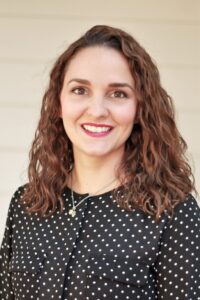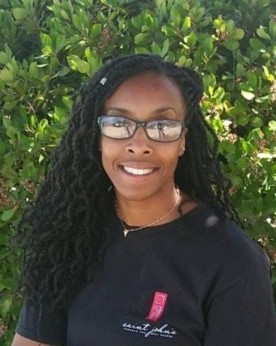
Tara MacDonald
Tara MacDonald is a mother of four, business owner, educator, and volunteer. She is obsessed with reading historical memoirs and cannot help unloading their contents on anyone she meets, including innocent passersby and middle school carpool passengers. Her kids’ eye rolls are no deterrent. Tara is also a committed advocate for abused and displaced children. She believes that educating the next generation of little ones with the stories of their brave ancestors will anchor them in truth and bring them a sense of belonging, peace, and purpose.
Why Share Family History Stories
Motherhood and solitude should be antonyms. It is only after her children are fast asleep that a mother has time to reflect. It was always in these moments of bedtime back scratches and stories that I was most acutely aware of the contrast in childhood circumstances between my own children and those I had volunteered with over the years in various nonprofit programs. As my kids were safely tucked into bed, my mind replayed reels of violence experienced by the many homeless and displaced children I had learned to love.
One evening, while ruminating over the frightening “unknowns” of their futures, I heard a particularly disturbing child abuse case on the news. My mind refused to be comforted much of the night until I remembered a small painting I kept in my nightstand throughout my childhood. It depicted a company of nineteenth century pioneers fleeing religious persecution in Illinois, hoping to make a better home 1200 miles west. With only sparse, torn clothing to protect them from the angry winter winds, they pushed what little food and supplies they had left in handcarts over the frozen Rocky Mountains. One man who traveled with the company recalled:
“I have pulled my handcart when I was so weak and weary from illness and lack of food that I could hardly put one foot ahead of the other. I have looked ahead and seen a patch of sand or a hill slope and I have said, I can go only that far and there I must give up, for I cannot pull the load through it. … I have gone on to that sand and when I reached it, the cart began pushing me. I have looked back many times to see who was pushing my cart, but my eyes saw no one. I knew then that the angels of God were there.”
Immediately my mind drifted back to the local children: I imagined their ancestors nearby, steadily watching over them from an unseen world, whispering words of hope and comfort to their broken hearts, passing on the many stories of their time on earth; the seemingly impossible obstacles they overcame and the freedoms they fought to preserve for their posterity. I imagined their desire to gather up these little ones in their arms. . . to teach them they were created to do great things. . . and though at times they may feel like they are navigating this life without help, they are truly never alone.
If I could find a way to connect these children with their ancestors’ stories, they would be much more prepared for life’s battles, armed with the palpable knowledge of their courageous past, and they would never be without a families’ comfort.

Sarah Clift
Sarah Clift, CG® , holds a Certified Genealogist® credential. She earned a certificate in genealogical research from Boston University and has a Bachelor of General Studies degree with an emphasis in writing from Brigham Young University. From 2018-2022, she taught and developed online family history research courses for Brigham Young University-Idaho. Her business, Past and Present Family Research, specializes in adoption and unknown parentage cases.
My Inspiration
On the way home from my childhood downtown ballet classes, my dad would listen to Paul Harvey’s broadcast, “The Rest of the Story.” One memorable story was why suit jackets have buttons on the sleeves. I think Paul Harvey’s stories fostered a curiosity in me about the backstory of everything. Being able to understand “the rest of the story” helped me make sense of the world. It was the same in my family. I come from a long line of genealogists, so family stories were part of my upbringing. My family stories were my story, and knowing them helped me understand myself.
When people know their backstory, they understand themselves better. Early in my professional genealogy career, I was helping a friend with her genealogy, and her paternal line on her pedigree was blank. When I asked her about the empty spaces, she said, “It’s a long story.” All she knew was that her father had been a sailor during WWII. Using traditional genealogical research and DNA results, I helped my friend discover her biological father’s identity. Since then, I have helped many people like my friend who have similar missing pieces in their stories.

Vanessa Hair
Her bravery, authenticity, and spiritual connection with her ancestors are now inspiring countless mothers on their journey to self-discovery.
After learning of her ancestor, Jane’s courage to gather up her children born into slavery and travel 600 treacherous miles northwest to freedom, evading slave catchers at every turn, Vanessa made this profound statement, “[Jane] recreated her own world as mothers often have to do nowadays, it feels like we are always fighting. . . and she rested here in this beautiful, peaceful place. Somehow, everything I go through, there’s this map to it. It’s just so natural, it feels like someone is carrying me. And I never know what or who it is, but it’s always this reassurance that everything is okay just as long as I stay focused on my kids. That love for them really beats the path for everything.”

